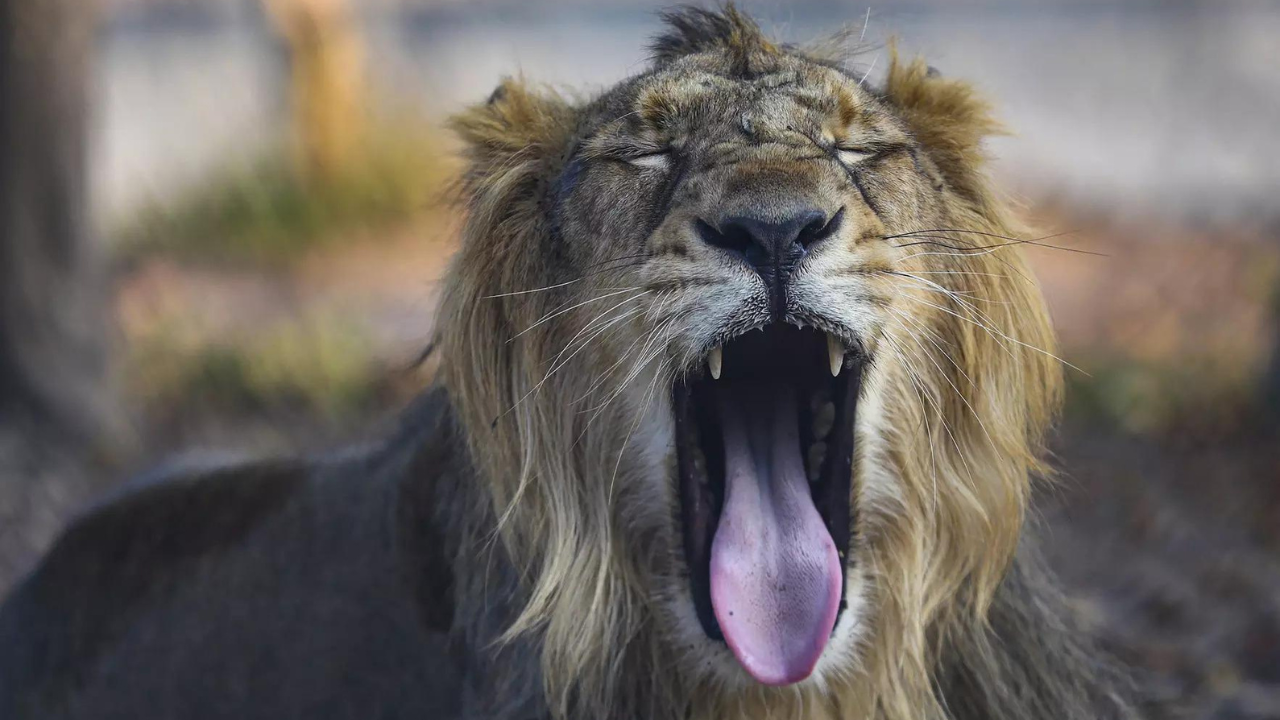[ad_1]
AHMEDABAD: In what comes as ‘a matter of pride’ for Gujarat, the International Union for Conservation of Nature (IUCN), which categorized the Asiatic lion as endangered in 2008, has reclassified it as vulnerable, indicating a positive shift in its conservation status. IUCN’s first global report underlines a significant difference between African and Indian lions in the risk of decline the iconic predators face – the likelihood of a 33% decline in lion population in Africa is 19 times higher than in India, primarily due to rampant poaching there.
Gujarat is the only abode of Asiatic lions in the world and going by the IUCN report, Saurashtra offers them a much safer haven. It states, “The lion population in Africa is estimated to have a 41% probability of declining by one third (33%) within three lion generations (past, present and future), while this risk is estimated to be at just 2% in Saurashtra, India.”
It must be noted that in 2020, a group of scholars had posited that the Asiatic lions of Gujarat may not be counted vastly different from their counterparts in central and west Africa. The IUCN too made changes in the binomial nomenclature, clubbing these groups due to genetic similarity. All the majestic cats found in these three regions came to be classified as Panthera leo leo. Earlier, the Asiatic lions were classified as Panthera leo persica. According to IUCN estimates, there are 23,000 lions in the wild today including 674 in Gujarat.
Elaborating on the risk the lion population faces in Africa, the report says the main threats to lions include continued habitat loss and conversion of safe spaces. “This has led to several subpopulations becoming small and isolated. Other significant threats include indiscriminate killing, primarily retaliatory or pre-emptive killing, to protect human life and livestock, and prey base depletion. In recent years, the targeted poaching for body parts has emerged as a significant threat to the species,” the report states.
According to IUCN, generally, economic losses caused by lions are among the highest reported in East Africa compared to other wildlife species. Consequently, lions are persecuted intensely in livestock areas across Africa; their scavenging behaviour makes them particularly vulnerable to poisoned carcasses put out to eliminate predators, the IUCN report further says.
Y V Jhala, a lion expert, says, “In Gujarat, lions are conserved more compared to their counterparts in Africa. The incidence of man-animal conflict is much higher in that part of the world. Here, people have learned to co-exist with them.”
The lions were found about 700 years ago in Eastern Europe. They were distributed from Africa right up to central India and Gujarat. The fact that, in the late 1960s, India signed an agreement to bring cheetahs home from Iran in exchange for lions, shows that Iran wanted to reintroduce the lion population to their land, said Jhala.
A senior forest officer said that one can hardly find poisoning incidents in the wild here. According to the researchers of the Wildlife Institute of India, the presence of lions helps farmers keep wild boars and nilgais away.
“Farmers are tolerant even if the lions kill their cows and buffaloes. The beasts do not face any habitat loss here. They have been exploring newer areas. Recently, a lioness and a cub were spotted in Jamnagar, and they are back to their original habitat now. Hence, one can conclude that there exist natural corridors for the movement of lions which are fragmented in Africa,” the officer said.
The apex predators will soon have a bigger protected area for themselves with the state forest department proposing a massive expansion of the Greater Gir sanctuary by incorporating areas contiguous with it, tripling its size from 10,000 sq km at present to 30,000 sq km.
[ad_2]






